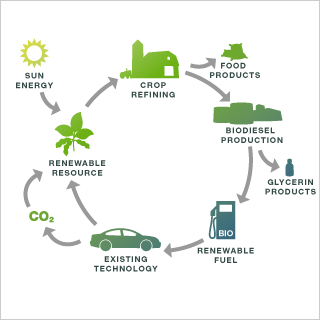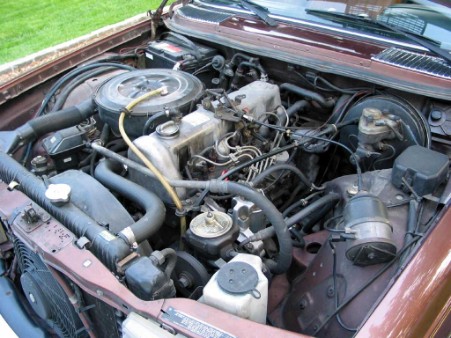 |
 |
|
Early diesel engine designs had complex systems and were designed to run on many different kinds of fuels, from coal dust to vegetable oil. During this time, vegetable oil was recognized, due to its high energy content, it would make an excellent type of fuel. The first demonstration of the fuel was at the 1900 World's Fair, where the Otto Company built an engine to run on peanut oil. A scientist named Rudolf Diesel then did work on different fuels, believing farmers would benefit greatly by providing their own fuel. Soon, the biodiesel engine and fuel would improve and become the standard for industry. Rudolf Diesel first designed different types of engines, succeeding at making an engine without the need of ignition. Rudolf Diesel made the prime model of a diesel engine on August 10, 1893. The engine was a 10-foot cylinder running on its own power for the first time. In the following years, he started to improve the engines, soon in 1896, increasing the efficiency by 75%. The diesel engines today are based on the original designs of Rudolf Diesel himself, being used in submarines, ships, locomotives, large trucks, and in electric generating plants. As of now, researchers at University of Nevada, Reno are studying how to use oil from coffee grounds for the creation of biodiesel. With the oil extracted from the grounds themselves, it undergoes standard processing into making the fuel. Reports say that “the technique is not difficult” and with there being so much coffee around the world, it can potentially be made annually. However, the amount is small as of now, stating that “It won't solve the world's energy problem”. Many factors drive scientists and researchers into studying different ways to create biodiesel. First of all, it helps save money, stating that you can save about 50% of your money switching from petrodiesel. Also, creating the diesel itself can be reproduced, having an unlimited supply into making the fuel, unlike fossil fuels where there is only a limited amount. Biodiesel also tends to be less polluting than most other types of exhaust emissions. Finally, the diesel does not strain the engine, allowing it to have a longer lifespan and better health. |
||